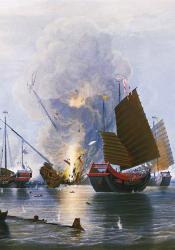Hong Kong
Hong Kong is a special administrative region of the People’s Republic of China. It currently has over 7.4 million people, making it one of the world’s most densly packed areas. Hong Kong was a British colony in the nineteenth century at the end of the First Opium War (1842). China gained control in 1997. Hong Kong is a modern commercial and financial center and has the highest number of skyscrapers in the world.
Coordinates
Latitude: 22.320001883171
Longitude: 114.167475700380
Longitude: 114.167475700380

